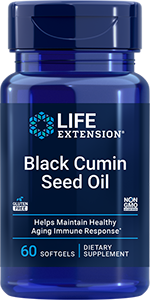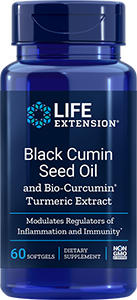Insufficient vitamin D levels associated with knee arthritis pain
Friday, November 9, 2012. Findings from the University of Florida reported on November 7, 2012 in the journal Arthritis & Rheumatism suggest a protective effect for increased vitamin D levels against knee osteoarthritis pain, which is greater in African Americans compared to those of European ancestry. African Americans have, on average, lower vitamin D levels compared to Caucasians, which may help explain some of the health disparities observed between these populations.
"Chronic pain is a disease," lead author Toni L. Glover, MSN, ARNP and her associates write. "The triage theory, proposed by Ames, hypothesizes long-term micronutrient deficiencies trigger chronic inflammation. In turn, chronic inflammation leads to chronic health conditions, many of which are characterized by pain as a disabling symptom. Recent research by Lee et al. supports the hypothesis that the etiology of osteoarthritis includes a systemic inflammatory component."
Forty-five African American and 49 Caucasians between 45 and 71 years of age with osteoarthritis of the knee completed questionnaires concerning knee symptoms and underwent tests of heat and mechanical pain sensitivity. Blood samples collected at the time of testing were analyzed for serum 25-hydroxyvitamin D.
African American participants reported more pain in comparison with Caucasian subjects. While half of the Caucasian participants had vitamin D levels that were lower than 30 nanograms per milliliter (ng/mL), these insufficient levels occurred in 84 percent of the African Americans. Average Caucasian vitamin D levels were 28.2 ng/mL, in contrast with 19.9 ng/mL among African Americans. "People associate vitamin D with good bone health," stated Glover, who is a research nurse practitioner and doctoral candidate at the University of Florida. "Yet, not everyone is aware of what factors decrease vitamin D and how low levels could contribute to health issues, including chronic pain."
"Our data demonstrate that differences in experimental pain sensitivity between the two races are mediated at least in part by variations in vitamin D levels," she concluded. "However, further studies are needed to fully understand the link between low vitamin D levels and racial disparities in pain. Although rare, vitamin D toxicity is possible and older adults should consult with their primary care provider regarding supplementation. It may be warranted that older black Americans with chronic widespread pain be screened for vitamin D deficiency to reduce disparities in pain." |
 |
 |
|
An article published online on August 31, 2012 in the Journal of Clinical Endocrinology and Metabolism, reports an association between lower levels of vitamin D and an increased risk of dying among African Americans and Caucasians over an 8.5 year period. While the risk of dying was greater among African-Americans compared to Caucasians, their vitamin D levels were lower, supporting the hypothesis that vitamin D insufficiency could account for their shorter average life span.
Stephen B. Kritchevsky, PhD of Wake Forest School of Medicine and his colleagues evaluated data from 2,638 men and women between 71 and 80 years of age. Parathyroid hormone and serum 25-hydroxyvitamin D levels were measured upon enrollment.
The risk of dying rose in association with declining levels of vitamin D. Having a serum vitamin D level of less than 10 nanograms per milliliter (ng/mL) was associated with more than double the risk of dying than the risk associated with levels of at least 30 ng/mL. Elevated parathyroid levels were also associated with increased mortality. While African-American subjects experienced a 22 percent greater risk of dying than Caucasians, the risk was modified after adjusting for vitamin D.
"We observed vitamin D insufficiency (defined as blood levels <20 ng/ml), in one third of our study participants. This was associated with nearly a 50 percent increase in the mortality rate in older adults," stated Dr Kritchevsky. "We all know that good nutrition is important to overall health and our study adds to a growing body of literature that underscores the importance of vitamin D and indicates that poor vitamin D nutrition is wide-spread. The good news is it's easy to improve vitamin D status either through increased skin exposure to sunlight or through diet or supplements." |

- On the cover:
- Reports:
- Departments:
- Journal abstracts:
|
|

|
 |
|
As we age, a balanced immune and inflammatory response becomes critical to guarding our health. Research has shown Black Cumin Seed Oil to be particularly effective. Scientists have determined that black cumin seeds contain a broad spectrum of active compounds. Combined, these compounds provide powerful and wide-ranging immune support and promote healthy inflammatory response.
A number of biological factors contribute to the body's normal inflammatory activity, including cell-signaling chemicals and hormone-like messengers. In a series of scientific studies, Black Cumin Seed Oil has been shown to support the normal effectiveness of these inflammatory factors.
|
|
 |
|
An aging, healthy immune system needs to orchestrate the activity of macrophages and helper T-cells that work together to identify and destroy dangerous microbes and abnormal cells. Black Cumin Seed Oil was shown to support the optimal function of these vitally important defensive activities.
By acting on both immune factors and inflammatory factors, Black Cumin Seed Oil supports a healthy immune system—which is increasingly important as we age—and facilitates a healthy inflammatory response.
Since curcumin possesses some of the properties of black cumin seed oil, some people might want to take both nutrients in the same capsule. |
|
|

Bio-Curcumin® and BCM-95® are registered trademarks of Dolcas-Biotech, LLC. U.S. Patents Nos. 7,883,728, 7,736,679 and 7,879,373.
|



